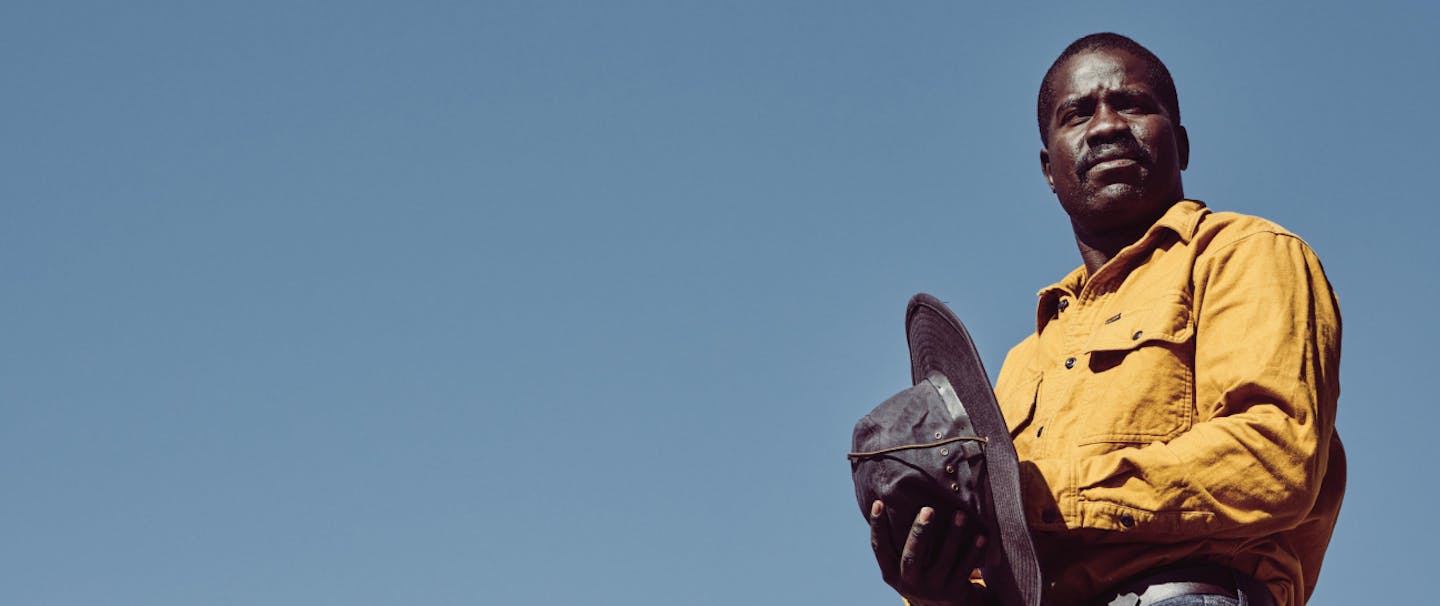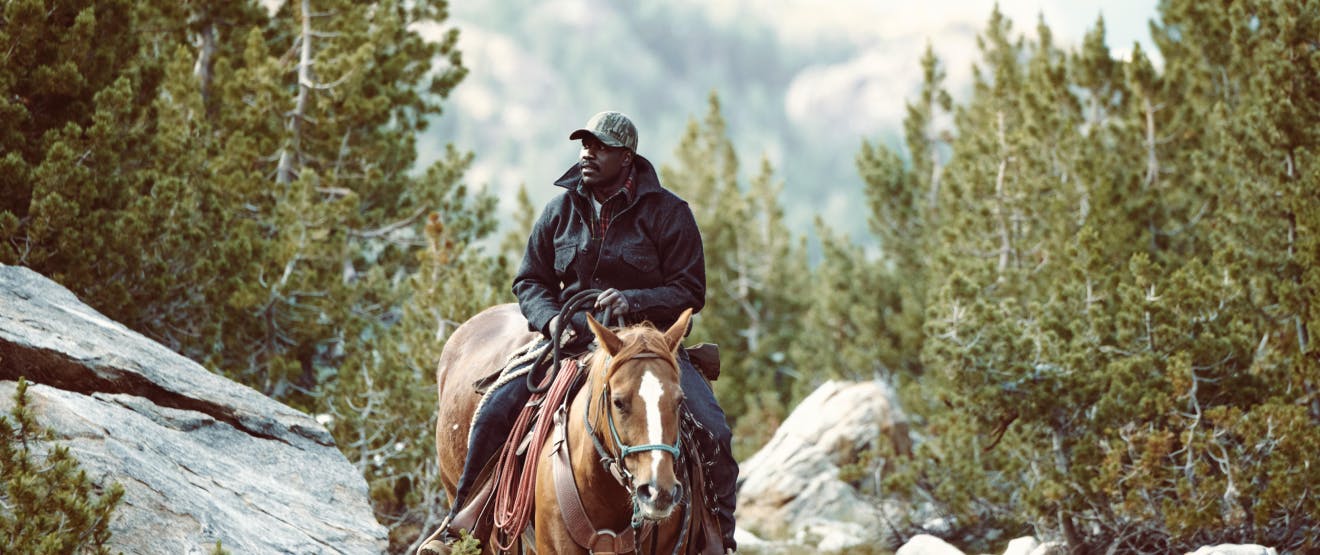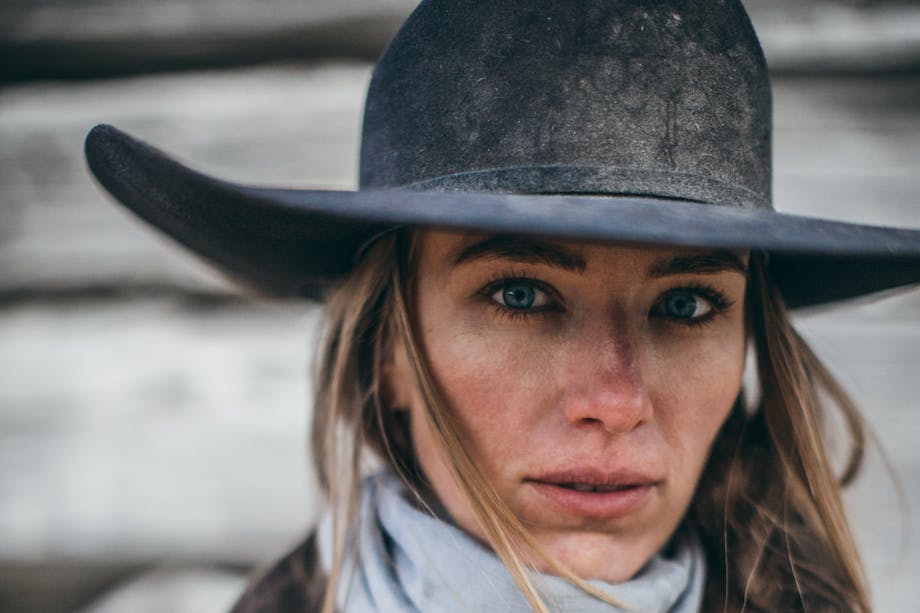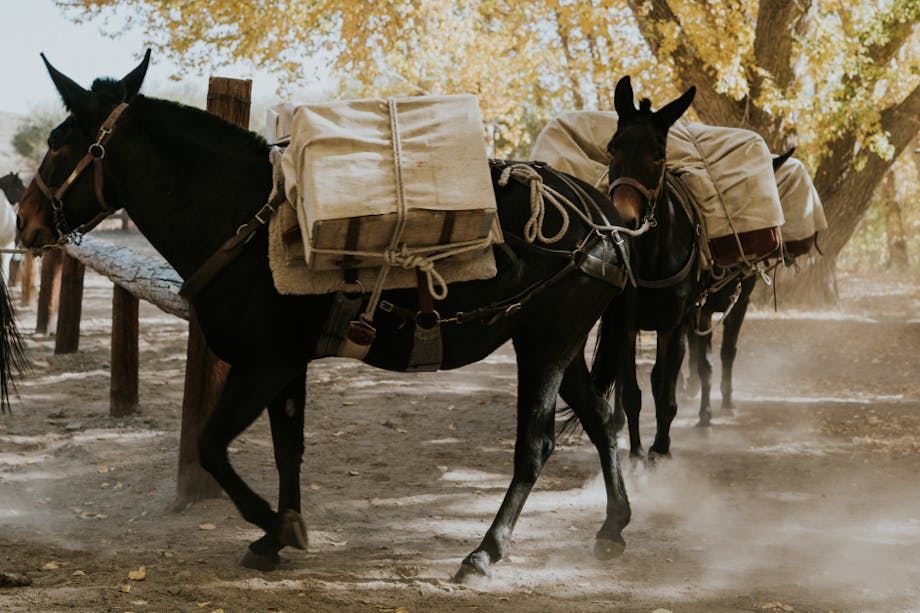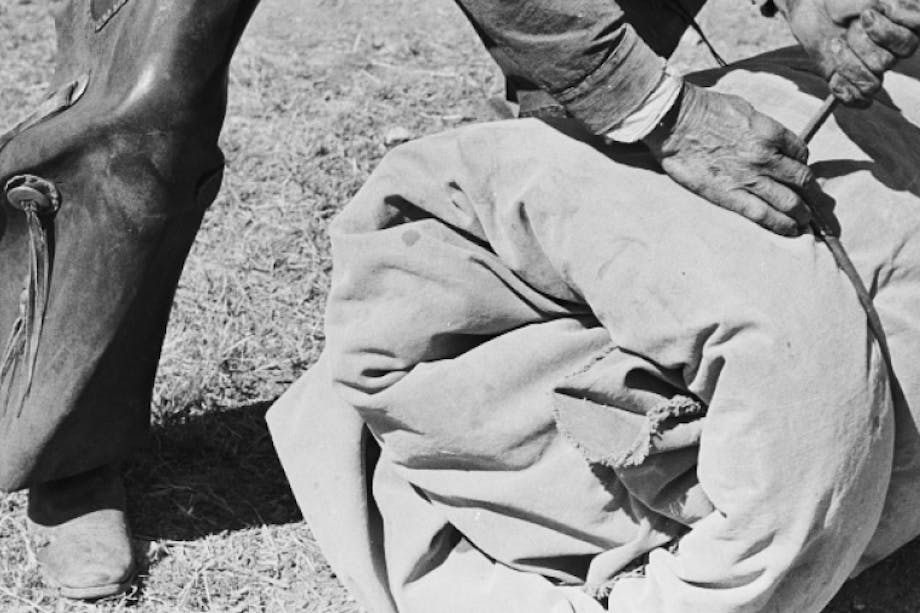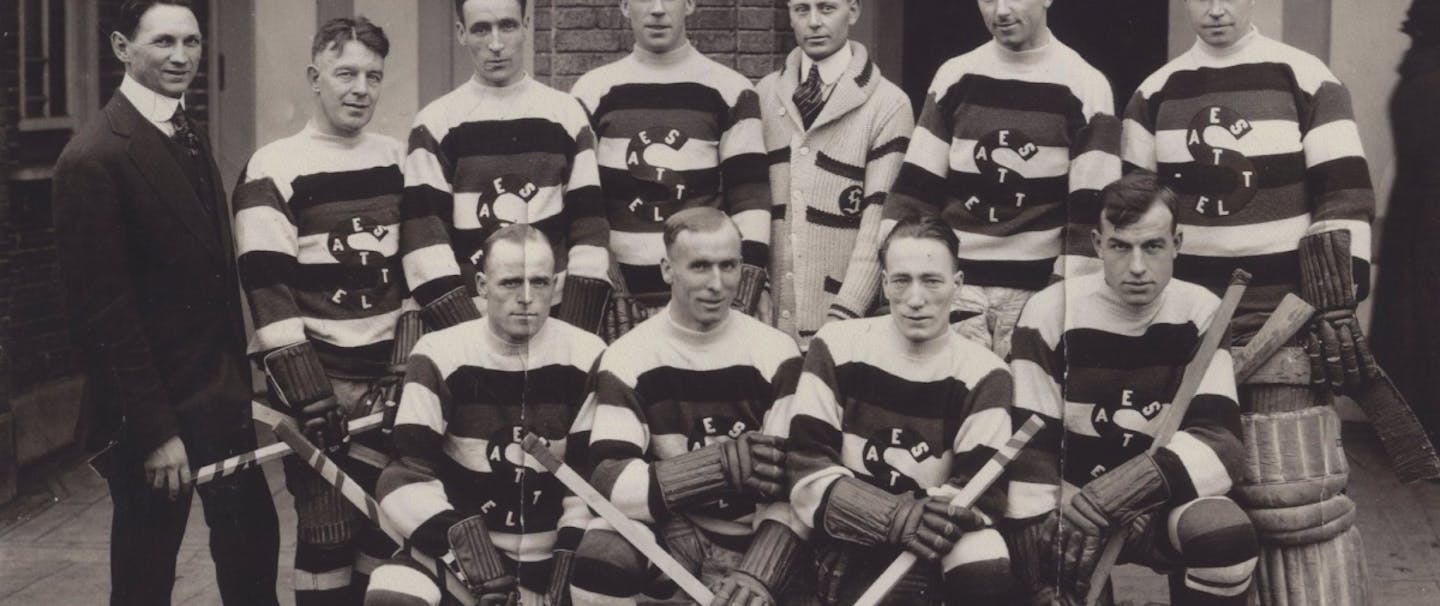The wind is starting to pick up, and the hazy sky slowly fills with slightly bruised clouds trying to crowd out the sun overhead. James Reeves pauses for a moment to catch his breath. For the last several hours, he has been leading his team of mules ever higher into the bleak and blasted landscape of the high Sierra Mountains. Each of his charges is carrying a strapped-down load of gear upon their backs, one that he has routinely checked throughout the day to ensure it is secure and is riding comfortably upon the backs of his team.
The trail underfoot is rocky, and he is about to enter into the most challenging section of it, the ascent up and over Bishop Pass. For the next mile, he will lead Buckaroo, Wasp, Loretta, Sara, John, Hugo, Reese, and Jackson up the steepest section of the trail over blocks of shattered granite and long switchbacks filled with loose talus. He takes a moment to check in with each of the mules, whispering words of encouragement and scratching a few behind their large banana peel-shaped ears. He pauses for a moment at Reese, a notorious troublemaker, to show him that he has his eye on him and then heads back to the head of the line. Pulling his cowboy hat down a little lower, he starts to walk towards the pass, sitting at almost 12,000 ft high in the sky leading his team behind him.
If everything goes according to plan, he should get to the camp inside Sequoia and Kings Canyon National Park in a few hours. Still, after six seasons as a full-time mule skinner, he knows that even the best-laid plans can go sideways. Especially when you are deep inside the backcountry with a team of animals known for their eccentricities. But he wouldn’t have it any other way. He, of all people, understands that sometimes life leads you into some strange places. Sometimes fate finds you by accident.
Reeves was born in Kenya in 1993. Not long after his birth, both of his parents passed away, and he went to live with his aunt, his father’s sister, and her two children. A few years later, Reeves met his adoptive mother, a teacher with the Peace Corps who worked with his aunt in a local school. They connected, and with his family’s blessing, he moved to Sacramento, California, a member of a new family.
at the end of the day, all anyone cares about is if you can do the job. If you can, then no one cares how you look.”
Growing up, he was a normal kid who played sports and thought about getting a typical 9-5 job one day. It wasn’t until the summer of his freshman year of college while working an internship for an outfitter that his father had arranged, that he ever spent any extended time in the wilderness. The idea of spending several months secluded from the life he had known at a remote backcountry pack station was daunting at first. He had no experience with pack animals, had rarely ventured into the wilderness, and would be surrounded by strangers, but he trusted his father.
Walking into the camp for the first time, he realized that besides being a rookie, he also stood out for another reason. He was a black man, something not often seen in that environment. But he put his head down, worked hard, and realized by the end of the summer that he was hooked. He had found his community. “When I walk into any pack station or ranch, I know from the get-go that I’m probably not going to look like anyone else who works there. I know that I am going to stick out. But anyone who wants to work all day with mules is a little different anyway, and at the end of the day, all anyone cares about is if you can do the job. If you can, then no one cares how you look.”

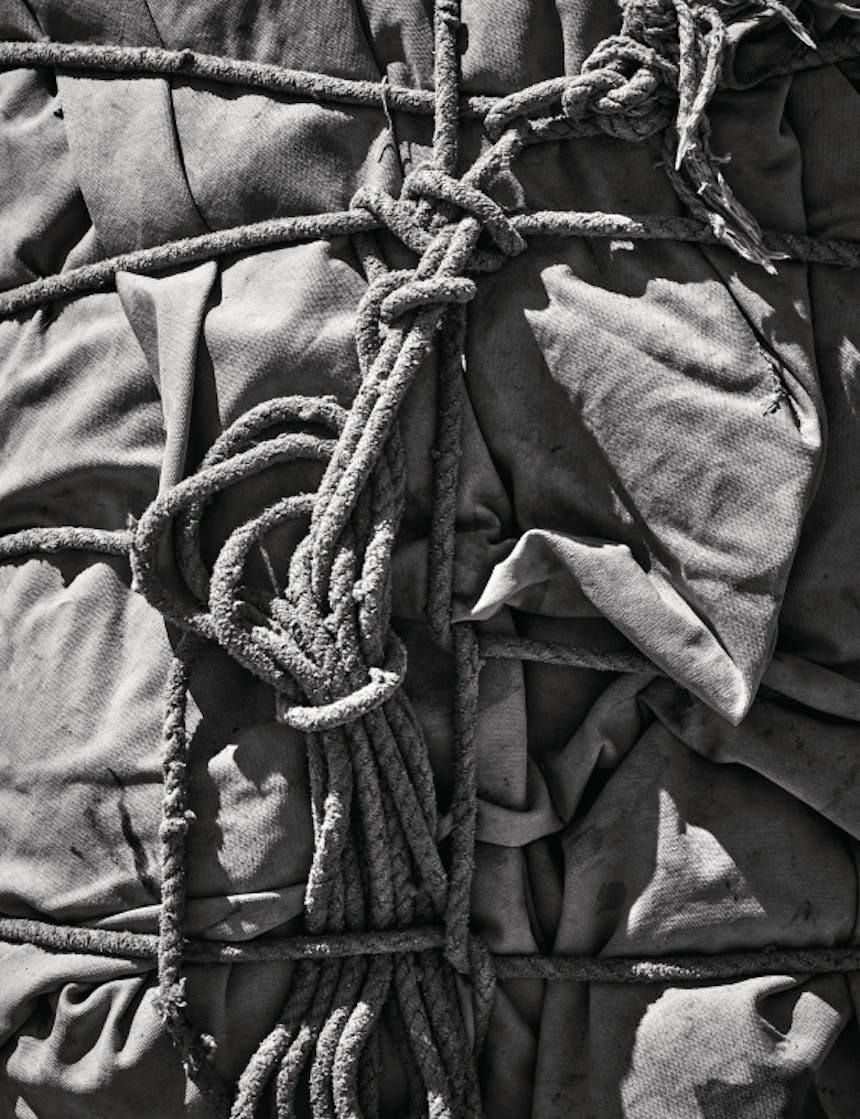
For the next five summers after school wrapped up, he would arrive at his pack camp in May to help prepare for the arrival of the busy season that begins in June and runs through September. As a muleskinner, his job is to organize and shepherd a string of mules through the backcountry for trips booked through the outfitters he worked for. Some would be for a few days, and some could stretch as long as a month. Each season would bring new mules into the teams he worked with at three different outfits. Some were green and required more focus, and others were veterans with their own quirks that he quickly learned.
“It’s impossible to go through a season of packing with a group of mules and not feel really connected to them,” he says. “They each have their own unique personalities. Some like people and some don’t, some dive into work and others require some extra focus, some are having a good day, and some are not. You never know what each day will bring. It can be both joyful and aggravating on the trail with them.”
"Watching the sunrise while riding down the trail can change you. It completely altered my life.”
When he arrives at the camp several hours later, the group of hikers he is supporting are still on the trail. The next few hours will zip by as he unloads the mules, carefully examines each one for injuries, feeds them, and starts to prepare the campsite. The evening will be spent with the group listening to everyone’s stories of the day. Throughout the trip, a shared community will form amongst the beauty of the wilderness they all are exploring. By the time Reeves has to lead his team back over the Bishop Pass several weeks later, unforgettable memories will have been forged, often at the strangest of times. That’s what time on the trail can do to someone. There is a slight smile on Reeves’s face as he imparts this nugget of wisdom. “Watching the sunrise while riding down the trail can change you. It completely altered my life.”
